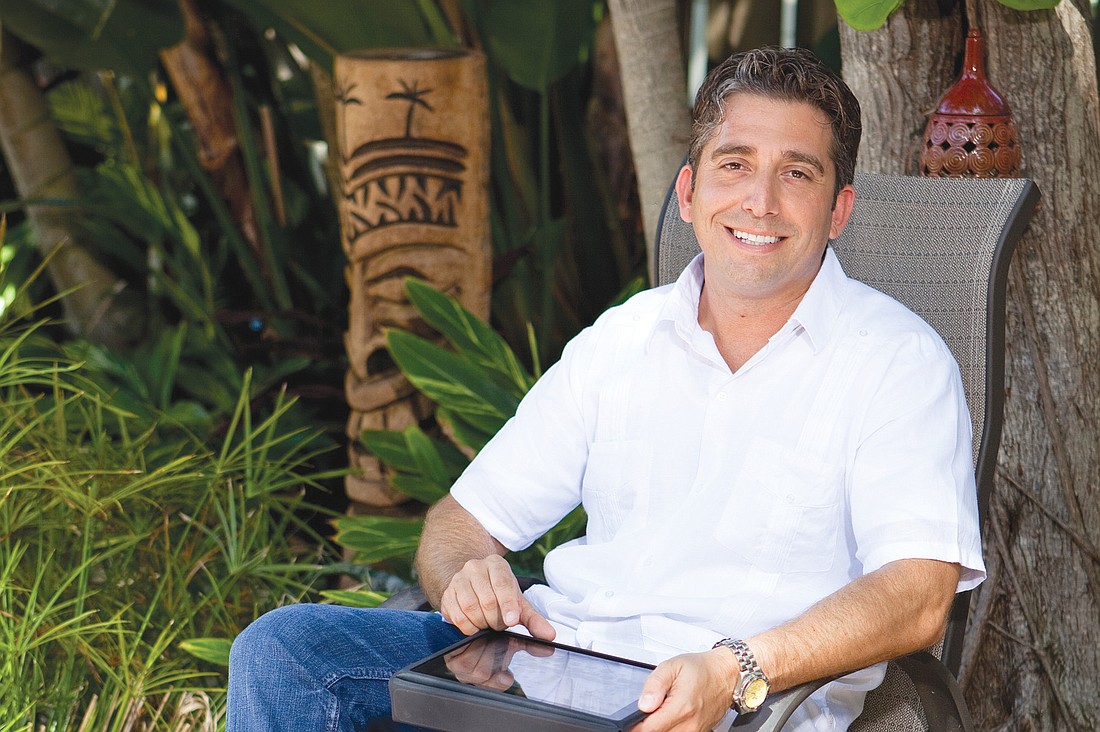- April 25, 2024
-
-
Loading

Loading

A big surprise awaited Abe Uccello in July when he scrambled in late to what he thought was a dinner meeting with his friend, Steve MacNamara, in Tallahassee.
A Sarasota entrepreneur, Uccello planned to talk government inefficiencies with MacNamara, a longtime heavyweight political player in the capital. At the time, MacNamara had been a chief of staff for both a Senate president and a House speaker.
But when Uccello rushed through the door at the restaurant, Kool Beanz Café, he saw not just MacNamara, but a small cadre of politicos holding court. And in the middle was Gov. Rick Scott, who sat next to the only empty seat, the spot reserved for a stunned, and suddenly nervous, Uccello.
A few hours later, Uccello, 38, was on the verge of landing a new high profile, volunteer job: chairman of the Florida Government Efficiency Task Force.
The state Legislature formed the 15-member task force in 2007. It meets every four years, with five members appointed each by the House speaker, the Senate president and the governor. Scott appointed Uccello, who was later voted chairman by the other 14 members.
The task force is assigned to deliver cost-cutting strategies to the Legislature for the 2012 session. And given government’s oft-documented penchant for waste, it won’t have a shortage of inefficient areas to consider. The task force’s ultimate goal is to find $3 billion in savings over four years.
Uccello, who once ran a $200 million unit of Computer Associates in Atlanta, is aware of government’s ability to spend unwisely. In fact, Uccello heard one such account soon after he joined the task force: The state Department of Corrections still uses handwritten time cards, a waste he estimates costs at least $5 million a year. “There’s room for improvement there,” deadpans Uccello.
Still, Uccello’s chat with Scott, which ranged from their similar childhoods to their families to how large government operations could successfully be run like a business, pulled on his civic pride. Uccello had also previously worked with MacNamara — now Scott’s chief of staff — on a project to cut waste from the Legislature’s technology budget.
“I’ve never wanted to be someone in the limelight,” says Uccello. “But when the governor of your state asks you to do something, you should be willing to do whatever you can to do it.”
‘Like a business’
The committee held its first meeting Sept. 19, and another meeting Oct. 5.
“I think we have a very good group,” says task force member Pat Neal, a former state senator who now runs Neal Communities, a Lakewood Ranch homebuilding firm. “My belief is that based on the quality of the people on the task force the Legislature will pay attention to us.”
The initial task force meeting last month was partially a blue-ocean approach to how government can cut costs. Suggestions included consolidation of the state’s highway taxing systems; deregulation of professions; and the creation of an office to monitor government accountability.
One key to the process, says former House Speaker Larry Cretul, according to the News Service of Florida, is to purge a “spend it or lose it” philosophy that permeates in state government. To back that, Uccello says the task force agreed in principle at the first meeting on a familiar cut-government-excess strategy: State agencies should be run like a business.
Good intentions, says Uccello, get muddied when that doesn’t happen. “So over time,” he says, “you end up with all these duplicative services that obfuscate the purpose of what you are trying to do in the first place.”
On that issue, the task force will consider recommending the Legislature adopt a 1% challenge, for which every state agency is required to pare its budget by that amount.
In addition to the run-it-like-a-business mantra, the task force broke down into subgroups that focus on specific issues. Neal, for example, is developing a purchasing system for state agencies, where departments can use combined clout for savings. And Uccello says technology, in just about every agency, is an area where redundant services and expenditures can be cut, with up to 20% savings.
Uccello expects the task force to have at least three, maybe four, solid, workable recommendations for the Legislature by January. Uccello grew up in Hartford, Conn., where he ice-skated on backyard ponds — although he lived with his family in Cocoa Beach for a few years when he was a young boy.
Now Uccello, who has since traded ice skates for paddleboards, considers Florida his home. “I know all over Florida people are hurting,” says Uccello. “And I think in Florida we have an opportunity to do better, and we should do better.”
Plan of Action
The Florida Government Efficiency Task Force will propose a series of recommendations to the Legislature in January. These are some of the ideas and concepts the task force has talked about through October:
• A requirement for year-round instruction at colleges and universities;
• Streamlining how the state solicits and accepts bids from outside contractors;
• Reducing the number of rules and regulations at state agencies;
• A limit on the number of state employees per capita;
• More transparency of the budget process;
• Keeping a database of state-owned
properties to see what valuable state property could be sold;
• Privatizing state-run entities, including Citizens Property Insurance;
• Eliminating the Florida pension system and shift to a 401(k)-style, defined-contribution system.
Source: News Service of Florida